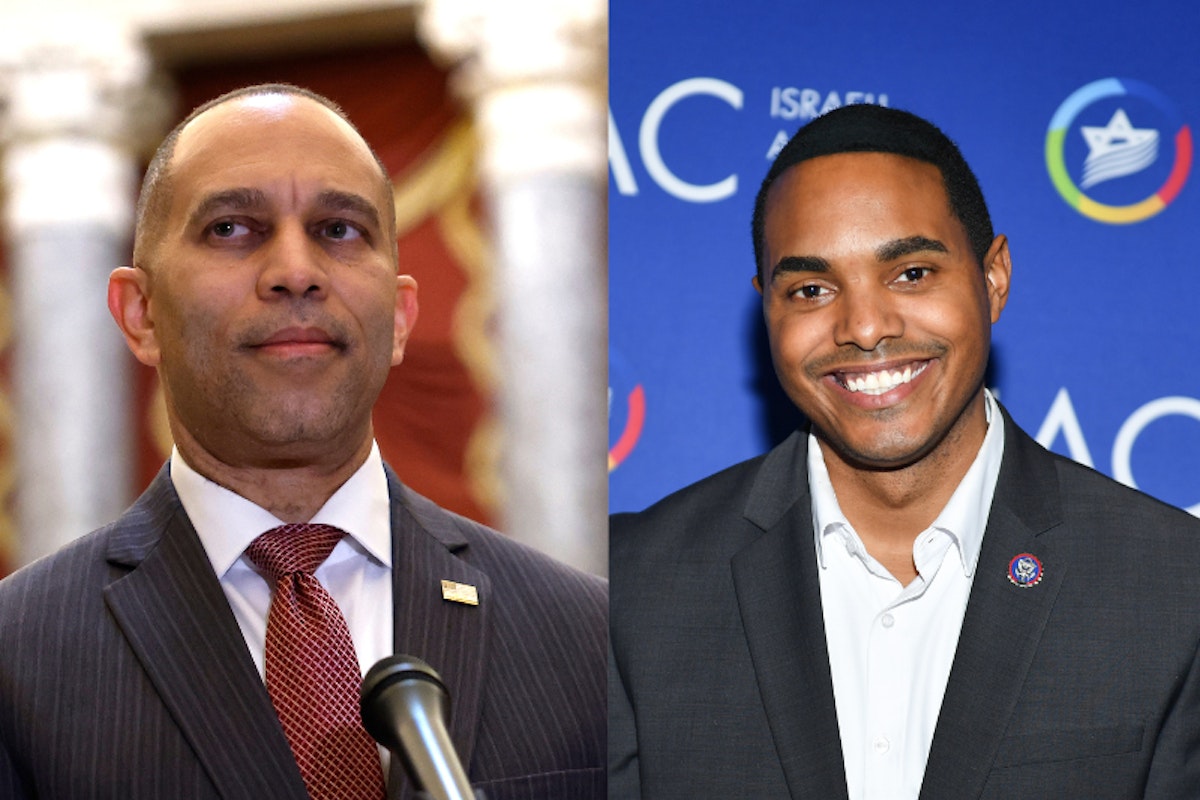How Israel Used Fake Social Media Accounts to Target Black Democrats
Israel paid for a foreign influence campaign to disseminate pro-Israel propaganda and disinformation to U.S. lawmakers, The New York Times confirmed on Wednesday. The campaign had been flagged and reported on for months across numerous social media platforms, but it was unclear the extent to which the Israeli government was involved in the operation. Turns out, the Israeli government directly commissioned the whole thing—and it was targeting Black Democratic lawmakers in particular.The influence operation—which seeks to sow criticism of pro-Palestine and campus protests and to bolster support for Israel’s attacks on Gaza—began in October, according to the Times. Meta, Facebook’s parent company, identified the operation last week. Meta described the campaign as “likely AI-generated” with ChatGPT posts from accounts posing as Jewish students, Black Americans, and “concerned citizens,” according to Reuters, and a focus on audiences in the United States and Canada.The Times reports the campaign is still active on X (formerly Twitter), where fake accounts posing as real Americans spammed pro-Israel propaganda in reply to predominantly Black U.S. lawmakers. The campaign targeted Ritchie Torres, a Democratic representative from New York well known for routinely espousing pro-Israel propaganda, as well as House Minority Leader Hakeem Jeffries. Both, coincidentally, are two of AIPAC’s largest donation recipients: Both Torres’s and Jeffries’s largest donor is AIPAC, while Jeffries is AIPAC’s top recipient.Israeli-based newspaper Haaretz also reported numerous examples of the fake accounts and included one reply from a ChatGPT-fueled fake account posing as a Black woman in response to U.S. Representative Sydney Kamlager-Dove, who represents California.“Israel’s role in this is reckless and probably ineffective,” Achiya Schatz, the executive director of Israeli disinformation watchdog FakeReporter, told The New York Times. That Israel “ran an operation that interferes in U.S. politics is extremely irresponsible.”According to sources involved in the campaign who provided documented evidence to The New York Times, the campaign was commissioned by Israel’s Ministry of Diaspora Affairs—a government body largely focused on pushing pro-Israel and pro-Netanyahu talking points to U.S. Jews and advocating for a highly controversial proposed definition of antisemitism. The ministry paid $2 million for the campaign, tapping Israeli political marketing firm Stoic.The exposure of the government agency behind the influence campaign is almost entirely too convenient: In January, a Tel Aviv University report called to shutter the ministry and fold its initiatives into the offices of the prime minister and the foreign ministry, consolidating power around far-right figureheads Benjamin Netanyahu and Foreign Affairs Minister Israel Katz.

Israel paid for a foreign influence campaign to disseminate pro-Israel propaganda and disinformation to U.S. lawmakers, The New York Times confirmed on Wednesday. The campaign had been flagged and reported on for months across numerous social media platforms, but it was unclear the extent to which the Israeli government was involved in the operation. Turns out, the Israeli government directly commissioned the whole thing—and it was targeting Black Democratic lawmakers in particular.
The influence operation—which seeks to sow criticism of pro-Palestine and campus protests and to bolster support for Israel’s attacks on Gaza—began in October, according to the Times. Meta, Facebook’s parent company, identified the operation last week. Meta described the campaign as “likely AI-generated” with ChatGPT posts from accounts posing as Jewish students, Black Americans, and “concerned citizens,” according to Reuters, and a focus on audiences in the United States and Canada.
The Times reports the campaign is still active on X (formerly Twitter), where fake accounts posing as real Americans spammed pro-Israel propaganda in reply to predominantly Black U.S. lawmakers. The campaign targeted Ritchie Torres, a Democratic representative from New York well known for routinely espousing pro-Israel propaganda, as well as House Minority Leader Hakeem Jeffries. Both, coincidentally, are two of AIPAC’s largest donation recipients: Both Torres’s and Jeffries’s largest donor is AIPAC, while Jeffries is AIPAC’s top recipient.
Israeli-based newspaper Haaretz also reported numerous examples of the fake accounts and included one reply from a ChatGPT-fueled fake account posing as a Black woman in response to U.S. Representative Sydney Kamlager-Dove, who represents California.
“Israel’s role in this is reckless and probably ineffective,” Achiya Schatz, the executive director of Israeli disinformation watchdog FakeReporter, told The New York Times. That Israel “ran an operation that interferes in U.S. politics is extremely irresponsible.”
According to sources involved in the campaign who provided documented evidence to The New York Times, the campaign was commissioned by Israel’s Ministry of Diaspora Affairs—a government body largely focused on pushing pro-Israel and pro-Netanyahu talking points to U.S. Jews and advocating for a highly controversial proposed definition of antisemitism. The ministry paid $2 million for the campaign, tapping Israeli political marketing firm Stoic.
The exposure of the government agency behind the influence campaign is almost entirely too convenient: In January, a Tel Aviv University report called to shutter the ministry and fold its initiatives into the offices of the prime minister and the foreign ministry, consolidating power around far-right figureheads Benjamin Netanyahu and Foreign Affairs Minister Israel Katz.


